A poll conducted by the US International Republican Institute (IRI) shows that the support that Zoran Zaev enjoyed was almost halved between January and February this year, even before the coronavirus outbreak began. In the IRI poll published in February, Zaev enjoyed 13 percent popularity, while in the current poll published today he has the trust of 8 percent of citizens. The first poll was conducted in early February, while the one published today – in the second half of February, which only further illustrates the rapid decline in the ratings of the SDSM leader.
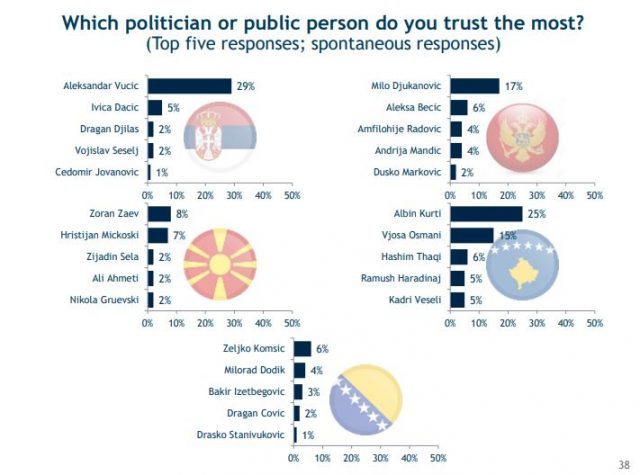
The poll showed almost equal support for VMRO-DPMNE leader Hristijan Mickoski, who garnered the trust of seven percent of citizens. In the poll conducted in the first half of February, Mickoski enjoyed 6 percent support, indicating an upward trend.
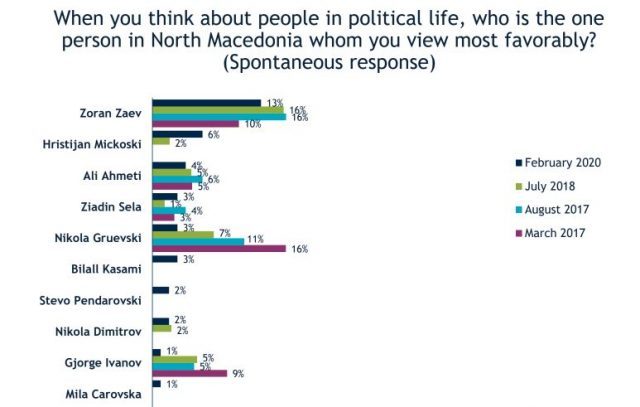
The IRI poll shows an extremely bad mood in Macedonia in terms of which direction the country is heading. The poll was conducted in several Balkan countries and shows that Macedonians have the darkest expectations of their country, especially in terms of economy and security – only Bosnians are approximately pessimistic.
When asked if the country is heading in the right or in the wrong direction, as many as 61 percent of the surveyed Macedonian citizens said – wrong, and only 33 percent think that Macedonia is heading in the right direction. In Montenegro, Serbia, and even Kosovo, the results are narrowly divided or in favor of those who think the country is heading in the right direction. In Bosnia alone, the ratio is worse than in Macedonia (87 versus 10 percent).
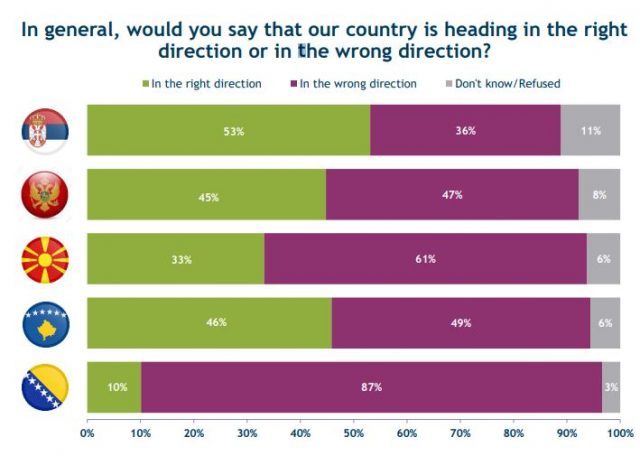
Only 17 percent of Macedonians believe that young people have a good future in the country, and 81 percent think that the future is bad. As the main problem, respondents point to unemployment and low standard of living.
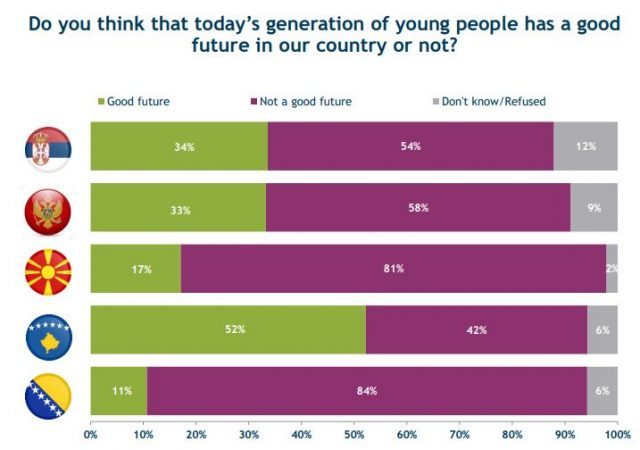
In terms of democratic standards, Macedonia has an extremely poor result in terms of whether citizens are afraid to openly express their opinion. As many as 23 percent said they were too scared to speak out, and another 42 percent said they were somewhat frightened by the consequences. In contrast, only 8 percent said they were not afraid to openly express their opinion at all, and another 25 percent said they were somewhat free to speak out. Even Bosnia has a better result in this regard, while freedom of speech in Serbia, Montenegro and Kosovo is incomparably better. Equally devastating are the results of media freedom – 58 percent of citizens say journalists are not free to report. The division is similar on the question of how democracy works in Macedonia – 28 percent are extremely dissatisfied with the democratic situation, and 32 percent are somewhat dissatisfied, while only 5 percent are highly satisfied with the Macedonian democracy and 34 percent are somewhat satisfied. Again of the entire Balkans, only Bosnia can be compared to Macedonia in this regard.
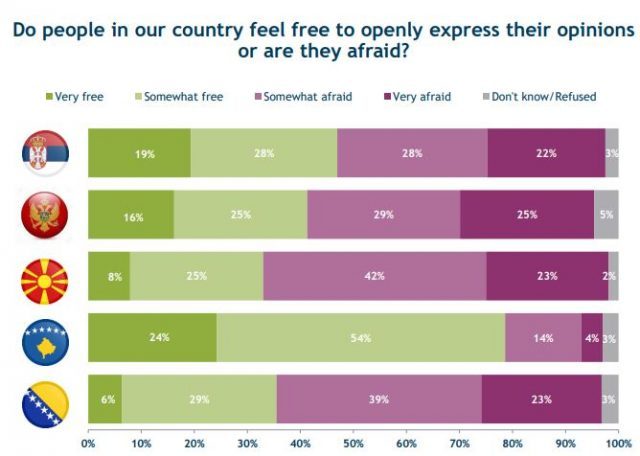
The spoll was conducted on behalf of IRI’s Center for Insights in Survey Research by Ipsos Bosnia and Herzegovina between February 2 and March 6, 2020. Data was collected through in-home, in-person interviews in each of the sampled countries.

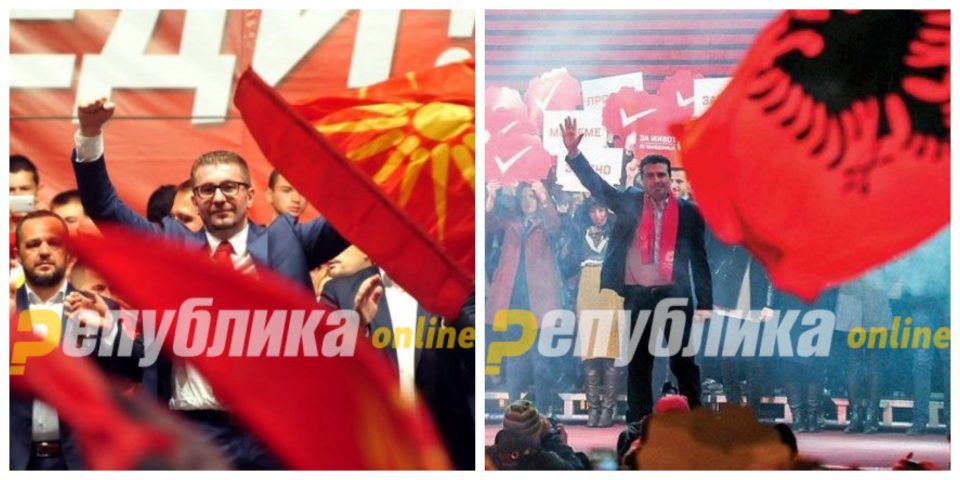



Comments are closed for this post.